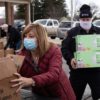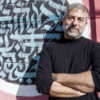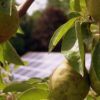Friday, August 6, 2021 | 28 Av 5781 Dear All, You might think this email would for me be easy and obvious. But it has been the hardest one to write. I want to convey some seemingly contradictory ideas. It has been right for the environmental movement not to overstate things (i.e. not to make wild claims beyond what we already know). But it’s been clear for some while that the numbers and the projected negative impact, in terms of temperature rise and concomitant impacts, were and are more likely to be worse, rather than better, than our median projections. And this summer has felt like a tipping point. 116 degrees in cool temperate Canada. People suddenly wanting air conditioners in Seattle. Flood deaths in Germany. Wildfires in California, Greece, Turkey. Here’s the Guardian today – 14 separate stories, led by “Last Month Was Worst July For Wildfires On Record.” The Covid pandemic is a parallel cautionary tale. A lesson about how something out of kilter in one part of the planet can have impacts the whole world over. A reminder of the fragility of systems – and of human beings. An object lesson in the necessity of good […]








